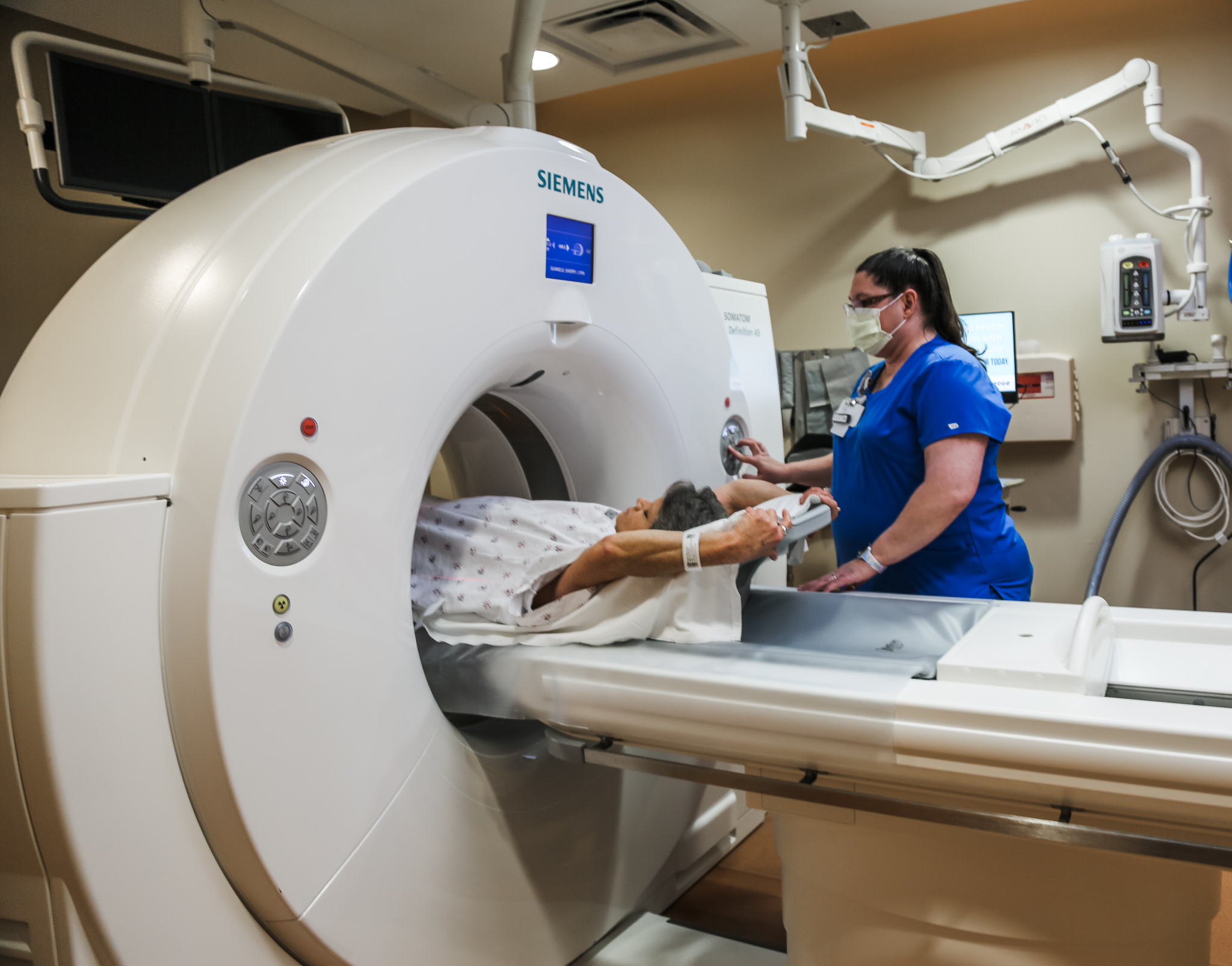
Published on June 9, 2022
Read Time: Four Minutes
If you are 50 years or older and are or were a heavy smoker, you may be considered high-risk for developing lung cancer. Fortunately, a simple scan could save your life.
Just like a colonoscopy or mammogram can help detect abnormalities and detect colon or breast cancer, respectively, lung cancer screening is a preventive tool to look for signs of lung cancer in high-risk patients. Lung cancer screenings can find concerns before you have symptoms.
Lung cancer is the third most common type of cancer and the leading cause of cancer-related deaths in the US.
An estimated 5,690 new cases of lung and bronchus cancer will be diagnosed in Missouri this year, and about 3,200 Missourians will die from lung and bronchus cancer in 2022. A majority of lung cancer deaths are related to smoking.
Lung cancer screening using a low-dose computed tomography (LDCT), or low-dose CT, scan is recommended for people who meet the following criteria:
- Ages 50-80
- Minimum 20 pack-years smoking history (To calculate pack-years, multiply the number of cigarette packs you smoked per day by the number of years you have smoked.)
- Current smoker or former smoker who quit less than 15 years ago
- No symptoms of lung cancer
- Participated in a shared decision-making visit with your healthcare provider
- Prior counseling on quitting smoking, if applicable
For example, a 60-year-old patient who quit smoking 10 years ago and has no symptoms of lung cancer (persistent cough, constant chest pain, coughing up blood, etc.) would be eligible, if they smoked heavily.
A heavy smoker is defined as someone who has at least 20 pack-years. If this individual smoked one pack of cigarettes (one pack equals 20 cigarettes) per day for 20 years, they would have a smoking history of 20 pack-years.
The patient’s doctor may identify this individual as a potential candidate for lung cancer screening. The patient would meet with their healthcare provider for a shared decision-making visit in order to confirm their eligibility and discuss the risks and benefits of screening. The shared decision-making visit can be conducted during any in-person visit with your healthcare provider.
Despite the benefits of lung cancer screening, only about one in 15 eligible people were screened in 2019 and 2020, according to the American Cancer Society, which recommends lung cancer screening with LDCT for patients at high risk of developing lung cancer.
Yearly LDCT scans are the only screening test shown to lower the chance of death from lung cancer, according to several studies. Scans from LDCT may reveal abnormalities that could be lung cancer or other health issues. Screening also may provide smokers with motivation to quit, said Devon Griep, lung cancer screening coordinator at Phelps Health.
If the doctor and patient decide to move forward with the screening process, the doctor will place an order for the scan, and the patient will be contacted to schedule the scan.
On the day of the scan, the patient will go to Phelps Health and can expect to be in the clinic for about 30 minutes to an hour.
Phelps Health is currently accredited by the American College of Radiology to perform LDCT scans, according to Christopher Spencer, MD, DABR, the medical director of the Phelps Health Delbert Day Cancer Institute (DDCI) and medical director of radiation oncology at Phelps Health.
The CT scan will take pictures of your lungs, and a radiologist will scan the images for abnormalities or nodules – spots on your lungs. The scan takes about a minute and no needles or contrast dyes are used. LDCT scans use less amounts of radiation compared to other CT imaging.
The patient will be contacted via MyChart, phone call or mail – usually within four business days of their scan being read. If the results are negative, the patient will return in a year for another scan as long as they are still eligible. If the results are positive, the patient and their provider will discuss the best next steps.
Medicare and many private insurance companies currently cover the costs of lung cancer screening for eligible patients. Patients should check with their insurance companies if they have questions about their coverage, Griep said.
As a member of the Siteman Cancer Network, Phelps Health’s partnership with Siteman Cancer Center “has allowed us to leverage their resources in order to build a [lung cancer screening] program that we hope to play a key role in improving the health and wellness of our community,” said Dr. Spencer.
Is Lung Cancer Screening Right for You?
Talk to your doctor to see if an annual lung cancer screening is recommended for you. Learn more about lung cancer screening.